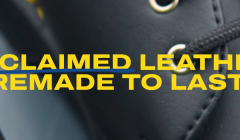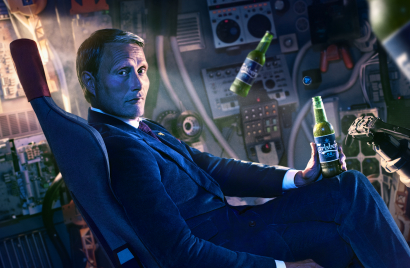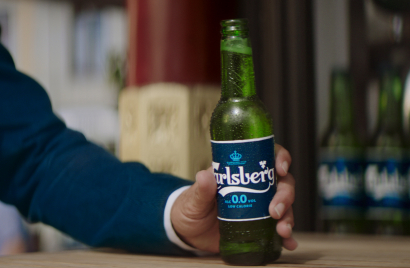
Dr. Martens champions sustainable fashion
Genix Nappa, a new material made of leather offcuts, aims to reduce waste

Carlsberg’s global campaign for its alcohol-free beer brand underlines the category's transition to the marketing mainstream.

“The best alcohol-free beer makes good things better…probably.”
Carlsberg’s new campaign, created by Grey Europe, features brand ambassador Mads Mikkelsen and promotes its alcohol-free brand, Carlsberg 0.0. The actor waxes lyrical on the improvements that come hand in hand with the alcohol-free beer.
The global campaign, which launched today in Ireland and Denmark and will be rolled out across other markets this year, poses the question, will every month be Dry January in 2021?
Social media chatter confirms January in the midst of nationwide lockdown might not at first thought feel like the most opportune moment for consumers to ditch drinking, particularly in light of the closure of schools.
Yet there is no question that new habits are formed quickly in lockdown presenting a significant opportunity for low and no-alcohol drinks brands to continue to grow their market share.
It’s a growth which demands brand investment. Historically consumers have pointed to data showing they want to ‘fit in’ with friends who are drinking as a key driver of why they choose an alcohol-free beer. At home, such drinkers doubtless face a wealth of new pressures but the need to ‘fit in’ has mercifully disappeared.
Yet there is no doubt that consumers are still in search of a ‘moment’ to break up the mundanity of daily life in which a Zoom call is a small substitute for the pub.
“At Carlsberg we believe that there is more to beer than its alcohol content and that great moments can be made better with beer,” explains Julian Marsili, Global Brand Director for Carlsberg.
Marsili continued: “That’s why we created a great tasting alcohol-free beer to make more moments even better. That’s what we wanted to celebrate in the ad.”
A myriad of data points have revealed that consumers in the UK have significantly changed the way they drink as a result of coronavirus. While the majority of media coverage has focused on the rise in alcohol consumption in lockdown, a significant countertrend is also afoot.
Even prior to lockdown, alcohol-free beer was the fastest-growing drinks trend in the summer of 2019 and overall sales were up by 58% when compared to 2018. According to Nielsen, sales of alcohol-free drinks were up by over a third in 2019 compared to 2018. It is a shift which has been capitalised on by brands and AB InBev has pledged that low and no-alcohol products will make up 20% of its drinks portfolio by 2025.
Research from Alcohol Change UK of 1,555 drinkers showed that one in three actually stopped drinking or reduced how often they drink since lockdown while 6% stopped drinking entirely. The research suggests that it is the consumers that were already drinking the least often who have cut down in the greatest number. Nearly half (47%) of people who drank once a week or less have cut down or stopped drinking.
The research shows that more than one in three (38%) of people who have drunk alcohol at some point are taking active steps to manage their drinking through lockdown. With 14% taking drink-free days, 9% being careful with the amount of alcohol they buy and 6% stopping drinking completely for the lockdown.
Far from being a niche market, the decision not to drink, or to switch up to an alcohol-free variant has fast become a mainstream marketing opportunity on a global scale. Love it or loathe it, Dry January and in fact dry every day, or at the very least a few more days than last year, is here to stay.


Looks like you need to create a Creativebrief account to perform this action.
Create account Sign inLooks like you need to create a Creativebrief account to perform this action.
Create account Sign in